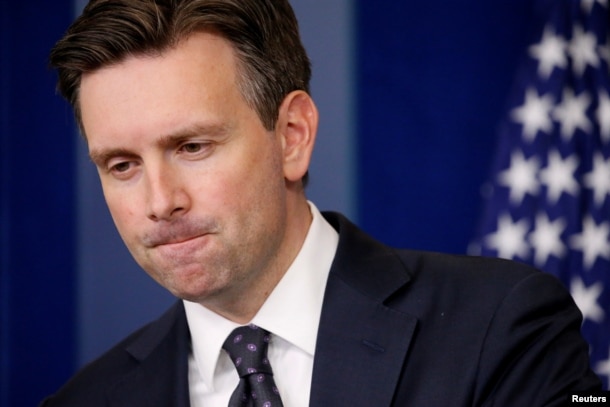Democrats and one prominent Republican accused FBI Director James Comey of wielding his authority for political purposes after Friday’s announcement that the FBI is reviewing a new batch of emails that could shed light on Democratic presidential nominee Hillary Clinton’s handling of sensitive information as secretary of state.
The allegations pertain to the Hatch Act, a longstanding U.S. law that bars federal employees from engaging in partisan political activities while on the clock and prohibits using federal agencies to sway an election.
In a letter to the FBI, Senate Minority Leader Harry Reid accused Comey of “tarring Secretary Clinton with thin innuendo” and demonstrating “what appears to be a clear intent to aid one political party over another.”
While the Nevada Democrat said Comey “may” have violated the Hatch Act, a prominent Republican formally accused the FBI director of misconduct.
“Director Comey allowed the FBI to be manipulated into releasing this information [about additional emails] shortly before the election,” Richard Painter, who served as the White House’s chief ethics lawyer under President George W. Bush, told VOA. “This is an extraordinary violation [of the Hatch Act], and the FBI should never have allowed itself to be used this way.”
Painter, who teaches law at the University of Minnesota, has filed complaints with the Office of Special Counsel, which investigates Hatch Act violations, and with the Office on Government Ethics.
The FBI has not responded to Painter’s allegations, and confirmed without comment that it received Reid’s letter.
White House Press Secretary Josh Earnest holds his daily press briefing at the White House in Washington, Oct. 31, 2016.
At the White House, spokesman Josh Earnest said President Barack Obama “doesn’t believe that Director Comey is intentionally trying to influence the outcome of the election.”
That view was echoed by some legal scholars.
“Comey simply informed Congress that there was continuing investigation into the emails,” said George Washington University law professor Jonathan Turley. “Someone can certainly question the timing or even the means of this disclosure, but it is not a violation of federal law.”
Turley acknowledged that the Justice Department has a policy of not releasing information concerning ongoing investigations or information that could impact an election, but added, “That policy is not a vow of silence.”
And, Turley said, Comey faced a no-win situation.
“He could have been accused of a violation of omission or commission. If he had withheld this information and it turned out to be significant, many people would have blamed him after the election,” the law professor said. “Instead, he erred in favor of a very limited disclosure.”
It is precisely the limited nature of Comey’s disclosure that has riled the Clinton campaign: revealing the existence of new emails but providing no indication as to what they contain or whether they illuminate Clinton’s handling of classified information as secretary of state.
Leaving the American public in suspense days before the November 8 elections is, according to Painter, “a completely unjustified action that can only be used for political purpose, and that’s a violation of the Hatch Act.”
The United States is not alone in barring government workers and agencies from official actions to impact elections.
“This kind of provision is common in many countries,” said Kevin Casas-Zamora, director of the Inter-American Dialogue’s rule of law program. “A different question is whether it is enforced rigorously. And there you find very significant differences.”
Zamora said Comey’s actions are startling to many in Latin America and beyond who view the United States as a nation where government officials scrupulously avoid even the appearance of swaying an election.
“That this kind of decision was made by the FBI director barely days before the election — this is the kind of thing that happens in banana republics, places where the state apparatus and law enforcement institutions are put to the service of partisan interests.”
“History will be the judge,” Turley said. “He [Comey] decided to err on the side of disclosure, because this was already a matter that was being followed by Congress and followed by the public. I don’t think anyone is seriously suggesting that he favors one party or the other.”
The Hatch Act, also known as An Act to Prevent Pernicious Political Activities, was passed in 1939. The Office of Special Counsel’s website says the law aims “to ensure that federal programs are administered in a nonpartisan fashion, to protect federal employees from political coercion in the workplace, and to ensure that federal employees are advanced based on merit and not based on political affiliation.”












